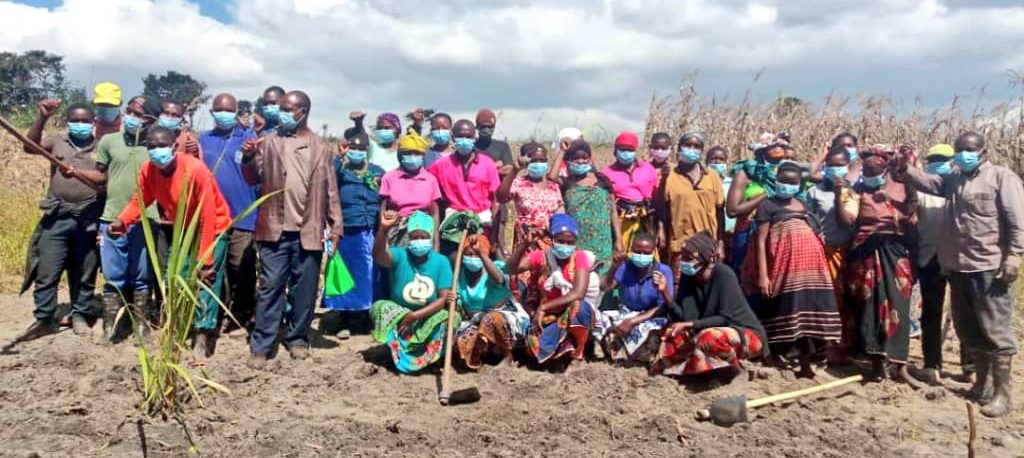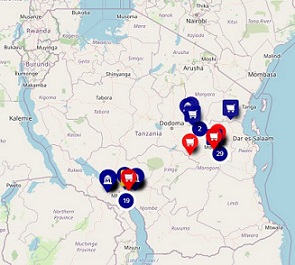World Environment Day is celebrated on 5 June every year, and is the United Nations’ principal vehicle for encouraging awareness and action for the protection of the environment. It was first held in 1974, and has been a flagship campaign for raising awareness on environmental issues emerging from marine pollution, human overpopulation, and global warming, to sustainable consumption and wildlife crime.
To effectively commemorate this day Mtandao wa Vikundi vya Wakulima Tanzania (MVIWATA) organised a series of activities and events at national, regional, district and grassroots level. Activities included planting of trees, dialogues on the relationship between land, agriculture and environment and exchange of indigenous seeds and traditional knowledge.
Smallholder farmers and members of MVIWATA in Manyara, Kigoma, Ruvuma, Mtwara, Morogoro and Shinyanga regions in collaboration with regional and district government authorities commemorated the day with planting trees in most affected areas including water sources. They also exchanged indigenous seeds and traditional knowledge while emphasizing on protecting the planted trees and nurturing the culture of preserving indigenous knowledge and seeds.
Speaking at MVIWATA Headquarters office on World Environment Day during the dialogue titled Agriculture, Land and Environment, MVIWATA Chairman Mr Abdul Gea said to 44 smallholder farmers and members of MVIWATA who were attending the training on leadership, agro-ecology and climate justice, that their livelihoods is dependent on well conserved environment.
MVIWATA Executive Director Mr, Stephen Ruvuga said during the dialogue that in order to mitigate the crisis arising from climate change smallholder farmers are obliged to rely on proven practices like agro-ecological farming methods that do not turn smallholders farmers into markets of technological means of mitigating crisis arising from climate change. Mr Ruvuga gave an example on how the pandemic COVID-19 has given rise of utilization of traditional medicines and herbs to sustain the lives of COVID-19 patients.
Smallholder farmers’ participants of the dialogue held at MVIWATA headquarters office gave comments mostly on how the climate crisis aided by industrial agriculture, monoculture and excessive use of toxic industrial chemicals in farming has affected them. Ms. Rukia and Ms. Rehema from Tanga and Lindi regions testified on how industrial seeds has failed to yield the results as propagandized by its agents.
They further added that excessive industrial activities in farming aided by application of industrial fertilizers and seeds has destroyed the natural soil fertility and the environment at large. They added that the only viable solution left is to rely on applying agro-ecological farming methods that are reliable and environment friendly while having no health effect to producers and consumers and independence from industrial inputs.
On giving alternatives to challenges arising from climate change smallholder farmers urged their fellow farmers to continue with the grassroots movement of applying agro-ecological farming methods and sabotaging fake capitalist solutions like Climate Smart Agriculture (CSA) and Reducing Emissions from Deforestation and forest Degradation (REDD). They also emphasised on been ambassadors in protecting trees that have been planted to ensure they grow and mitigate the crisis.
During the commemoration of World Environment Day members of MVIWATA also read and discussed the Open Letter developed by all members of La Via Campesina Southern and Eastern Africa to the member states of SADC and EAC demanding on climate justice.
“THE DEFENDER OF A FARMER IS A FARMER”







